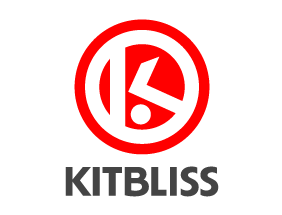It seems I largely missed out on the petrol/football tie-ins that were so prominent in the early-70's. Everyone always thinks of Esso as being the masters of marketing where that's concerned (and rightly so), yet one little-known company had a go at cashing in on football fervour too - and made a decent job of it.
I say 'little-known company' - in fact it was a regional petrol company that was owned by Esso, not that anyone was really aware of that at the time. Cleveland Petrol had started out in the 1930's selling ethanol fuel in the north-east of England, but just before their forecourts were fully rebranded to Esso, they had the chance to embark on one or two football-related trade campaigns.
Golden Goals just happened to be a tie-in of sorts with ITV's The Big Match and it followed a familiar format. In the traditional manner, customers spending £1 on petrol at Cleveland stations were offered a free gift; in this case, a packet containing a solitary sticker. It doesn't sound like much, but the sticker was quite large and often split into two or three separate smaller images. Those images could then be stuck into an accompanying album (price: 20p) which doubled up nicely as a hardback reference book for the discerning young football fan.
If you lived in London or the South East back in 1972, you'd know that Golden Goals was The Big Match's answer to Match of the Day's 'Goal of the Month' competition on the BBC. Luckily for fans of 'Shoot' (the ITV football show in the north-east of England), they got to see The Big Match often during the 1971-72 season. That's because the Tyne Tees cameras were often sent away to cover horse racing at Redcar or Newcastle, so to fill in, they'd broadcast The Big Match instead.
Specific teams were also given special treatment. Manchester United's 'goal power' looked at the awesome strike partnership of Bobby Charlton, Denis Law and George Best, while Arsenal's route to double-winning glory was also brought into sharp focus. There was even room to look at local rivalries within British football and the great teams of international football - neither of which had anything directly to do with great goals, but were beautifully illustrated all the same.
The concept of Golden Goals as a book along with its accompanying stickers was beautifully executed in a very subtle way. Whereas Panini and their ilk introduced the concept of albums containing many hundreds of stickers in a single collection, Cleveland's version had only 41, yet there's never a feeling of 'if only there were more' about it. The stickers are not intrinsically vital to the book because the book is a fine piece of work in its own right. And yet although the stickers only played a complementary role, you still got that feeling of joy when your Dad handed you a pastel blue packet at a Cleveland Petrol station, and you still had the pleasure of sticking your stickers into the book, thereby making it even better than it was.
This 'less is more' approach showed how Panini might have developed their collections in later years, and may even have avoided their demise of the early 1990's had they done so. By producing a hardback book packed with lots of information and far fewer stickers, Cleveland showed cleverness in creating something more substantial than a basic sticker album yet still had the allure of building a collection within it.
And while everyone was waiting for the video recorder to be invented, what better way to remember great goals than to study them in illustrated form, page by page? This book had them by the dozen and celebrated them with real flare and integrity. Oh, and the petrol came in quite handy too.





















Who needs You Tube to watch goals? We had Illustrations!
ReplyDelete@Statto_74
Many of which were better than the videos on YouTube, let it be said...
DeleteI loved collecting those stickers. I was eight years old in 1972 and never had the official sticker book but I stuck the stickers into a notebook I bought in Woolworths and wrote my own captions under each photo. The notebook
ReplyDeleteI think there must have been a complete set available as my uncle gifted me the book with one each of all the stickers.
ReplyDeleteI was 7 years old. I have that annual still and having collected all stickers to complete it, it is still a prize possession. Wonderful the way dotted and bold lines show who is running where and where the ball is travelling. Some great hair cuts too !
ReplyDeleteWaited and waited for the follow-up covering 1973-1980 - never came, sadly. Still have my original in a safe place, mind.
ReplyDeleteI was only 3 in 1972 but my Grandad collected as many if the stickers as he could and gifted me the book when I was a bit older. It was my first football book and my most treasured
ReplyDeleteI had this. Kept it for decades. Those pages look so familiar. Regret throwing it away...
ReplyDelete